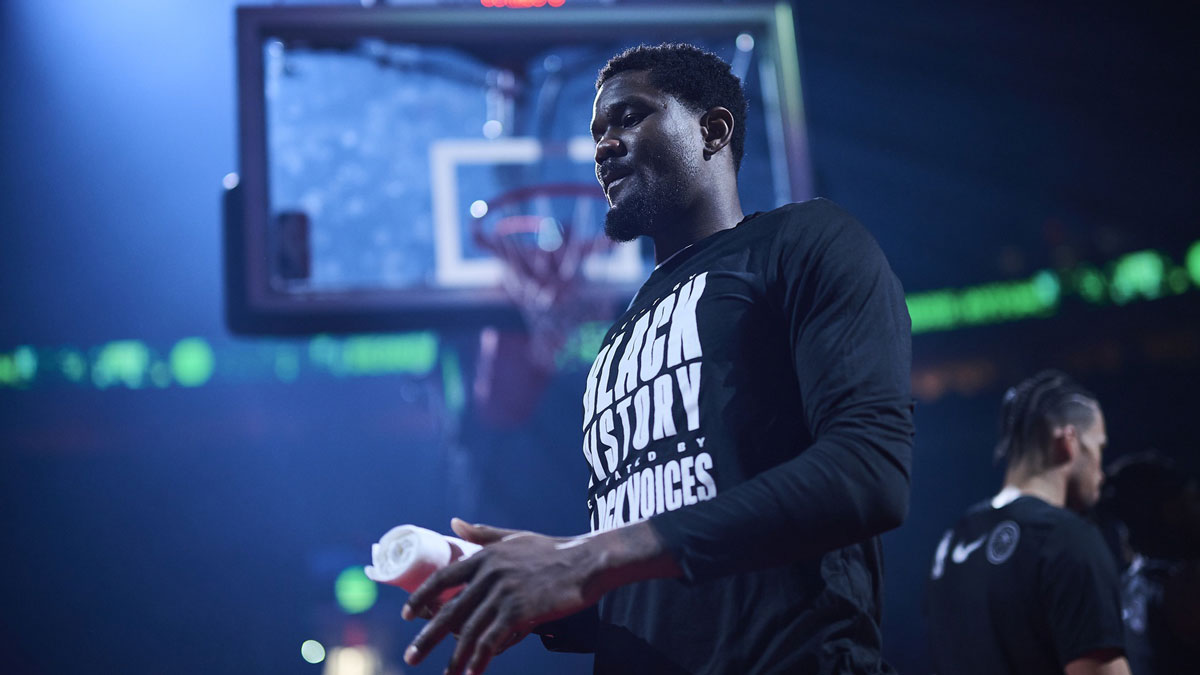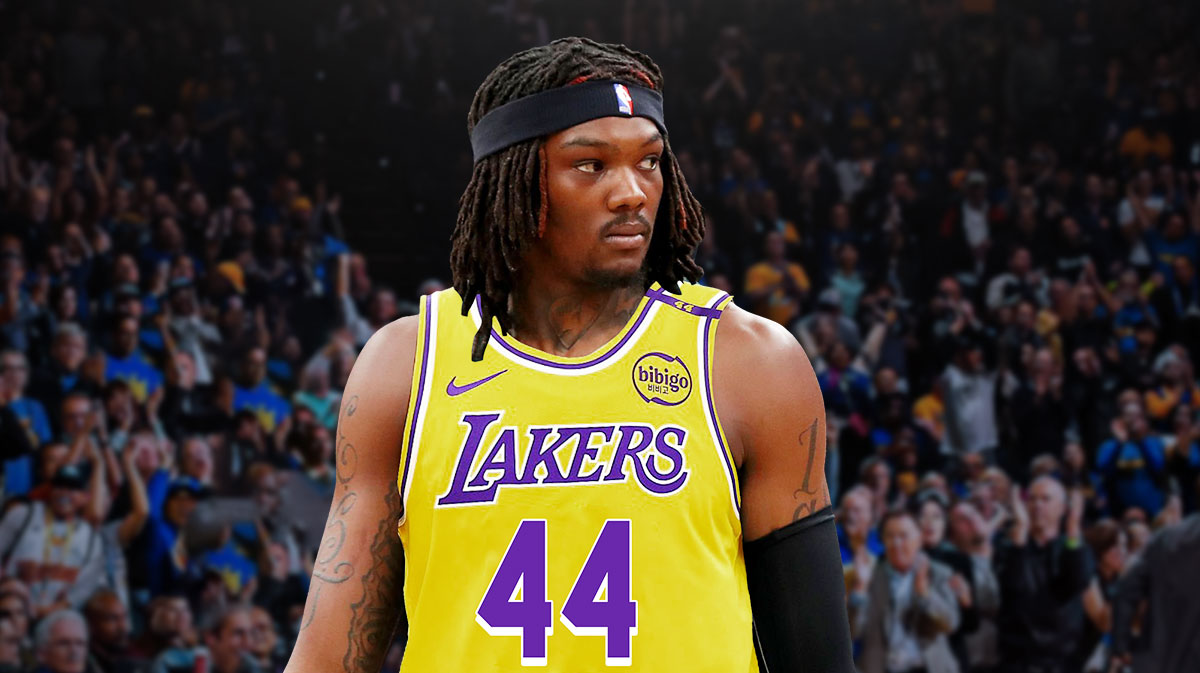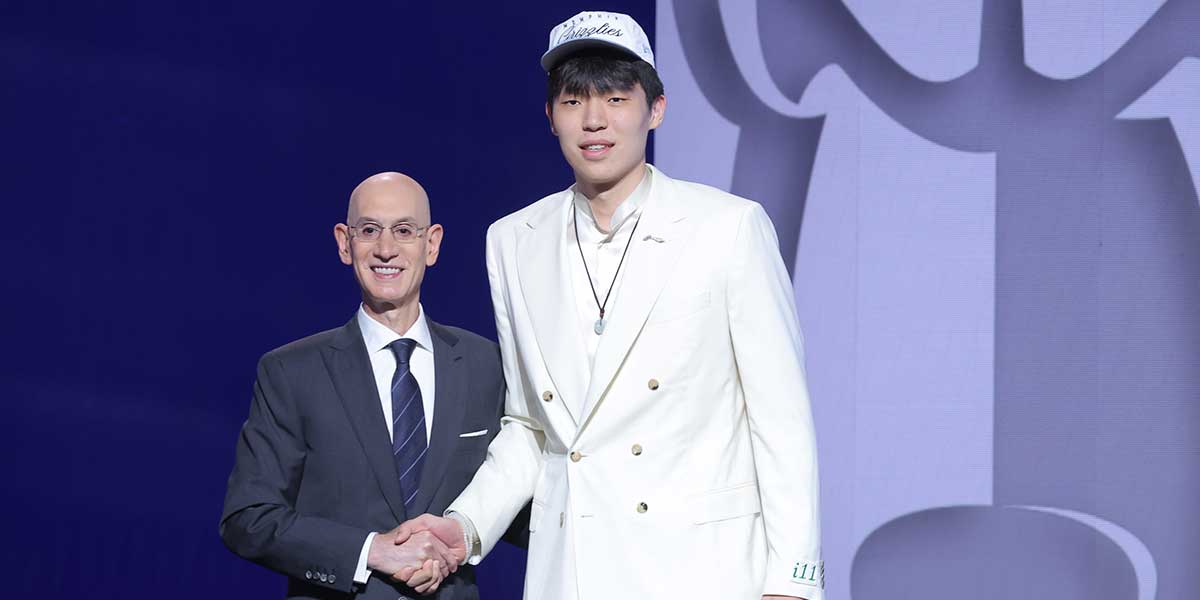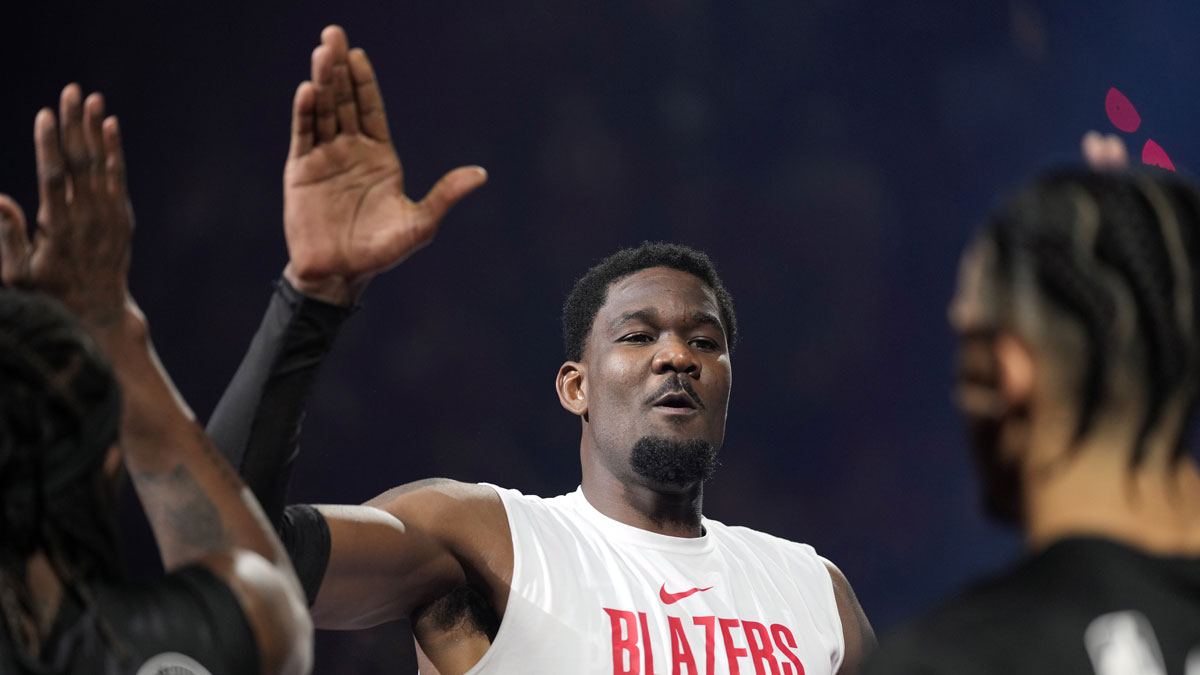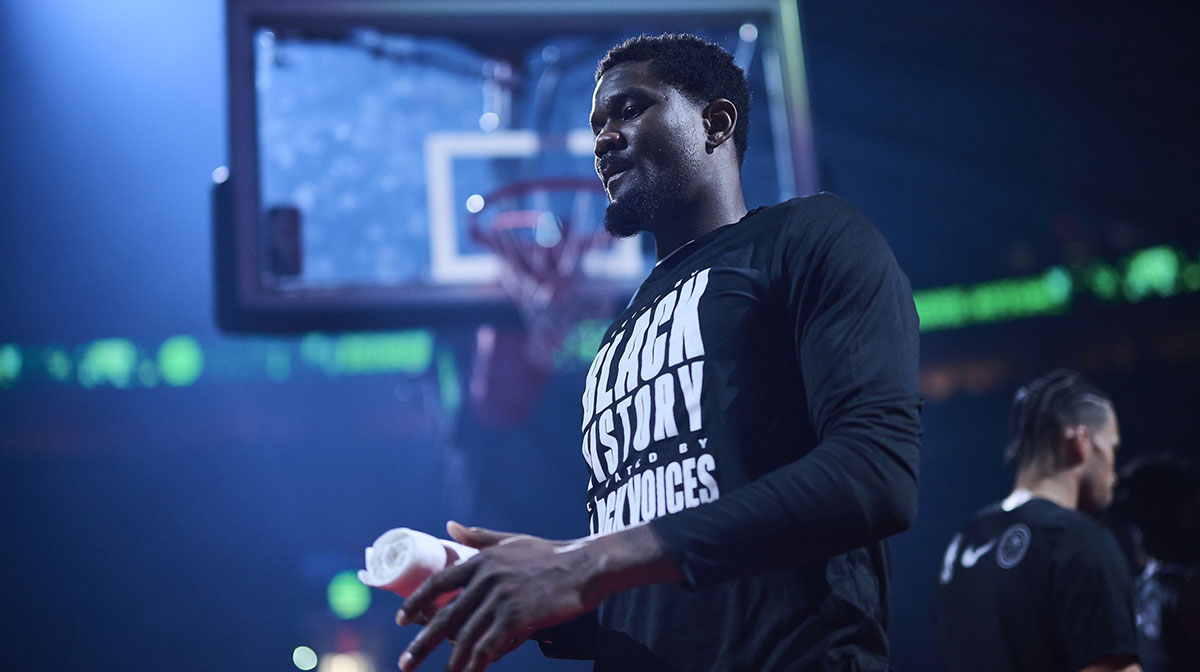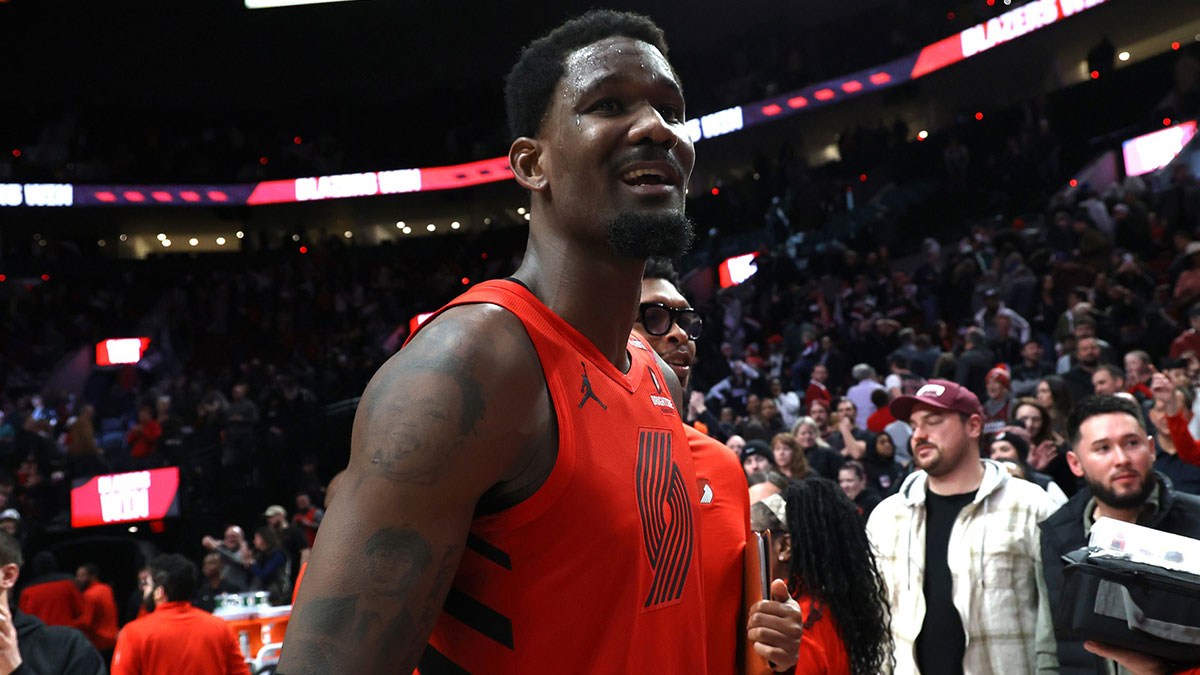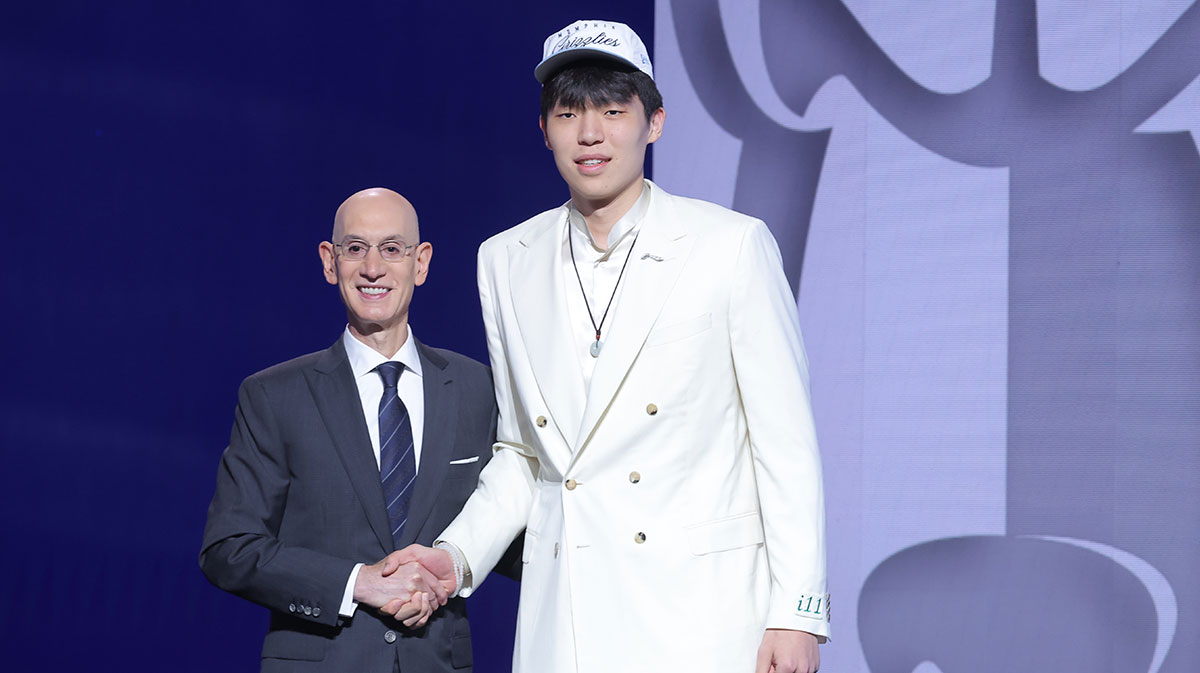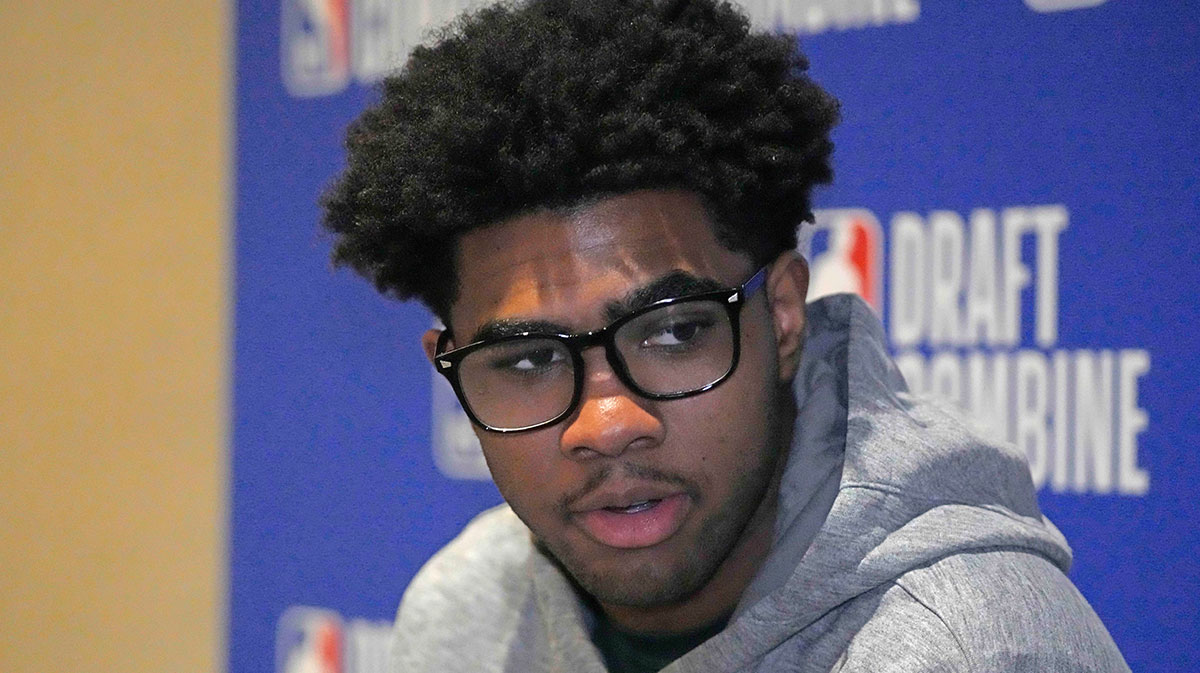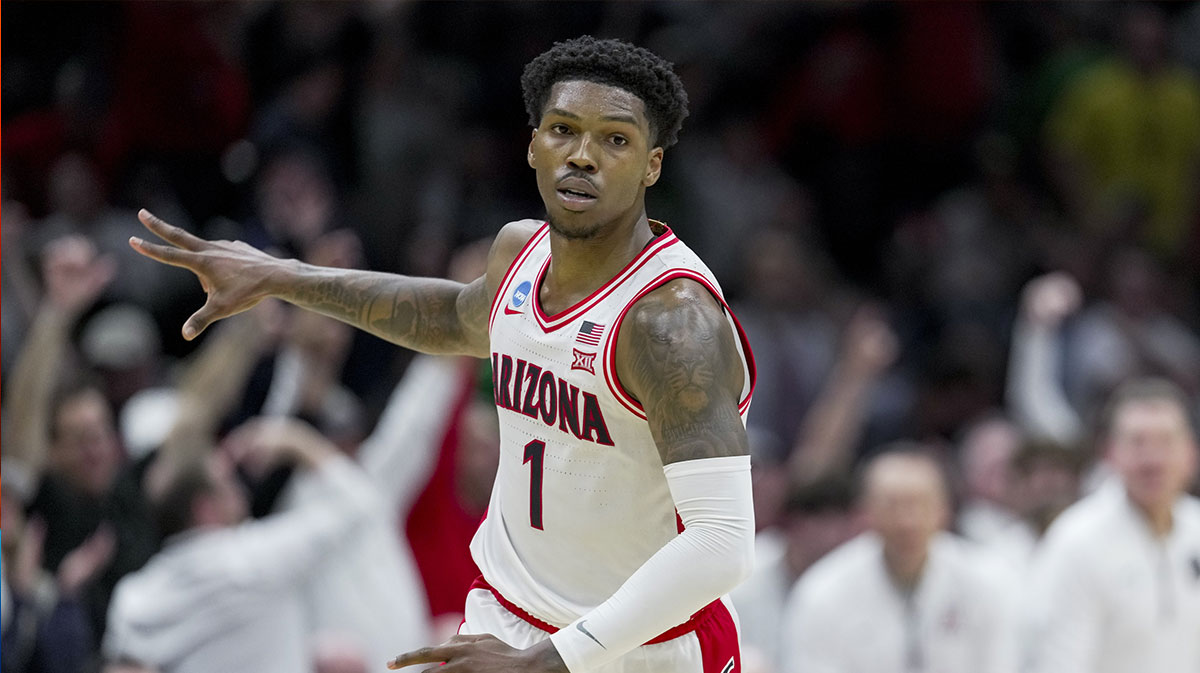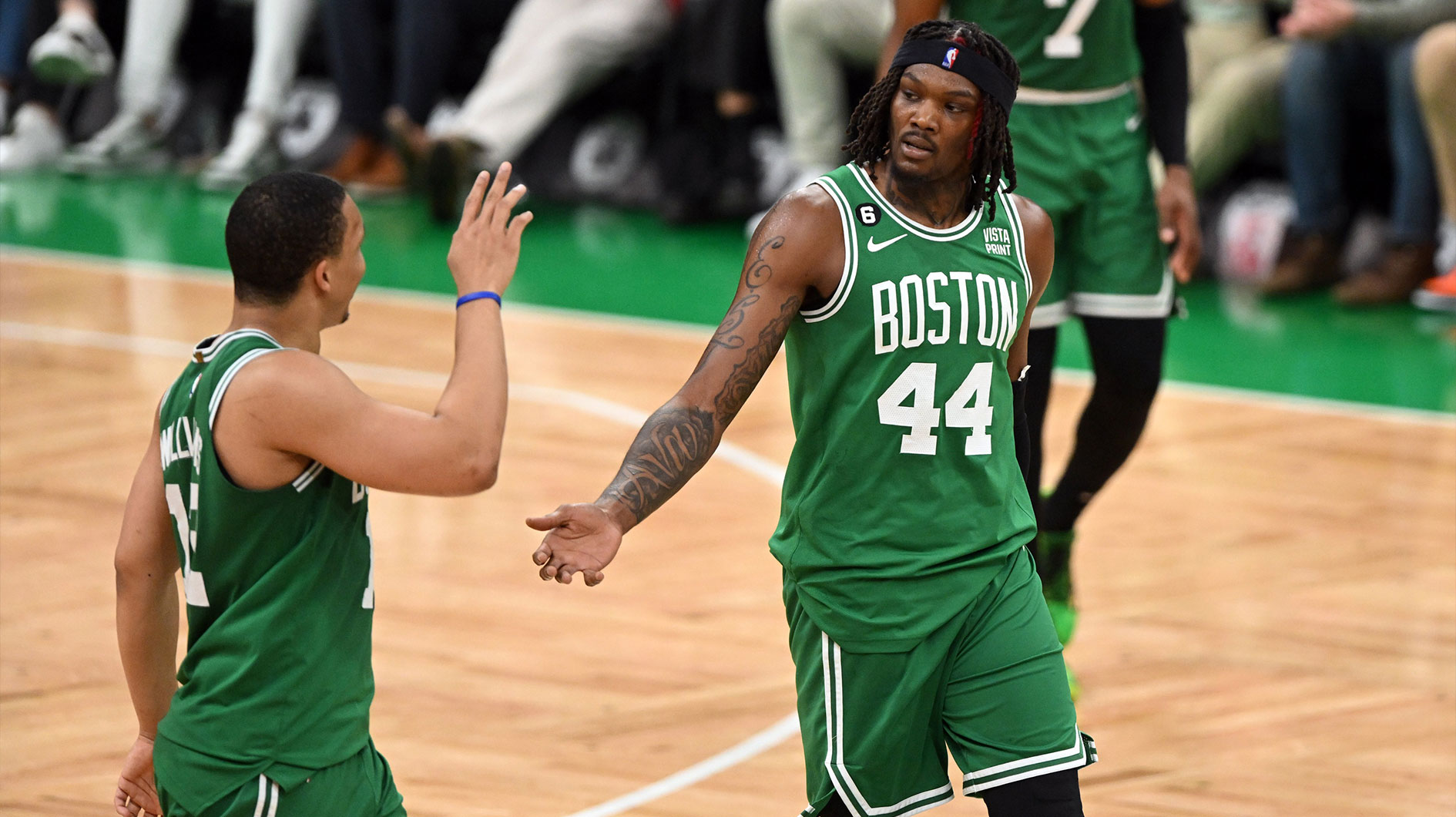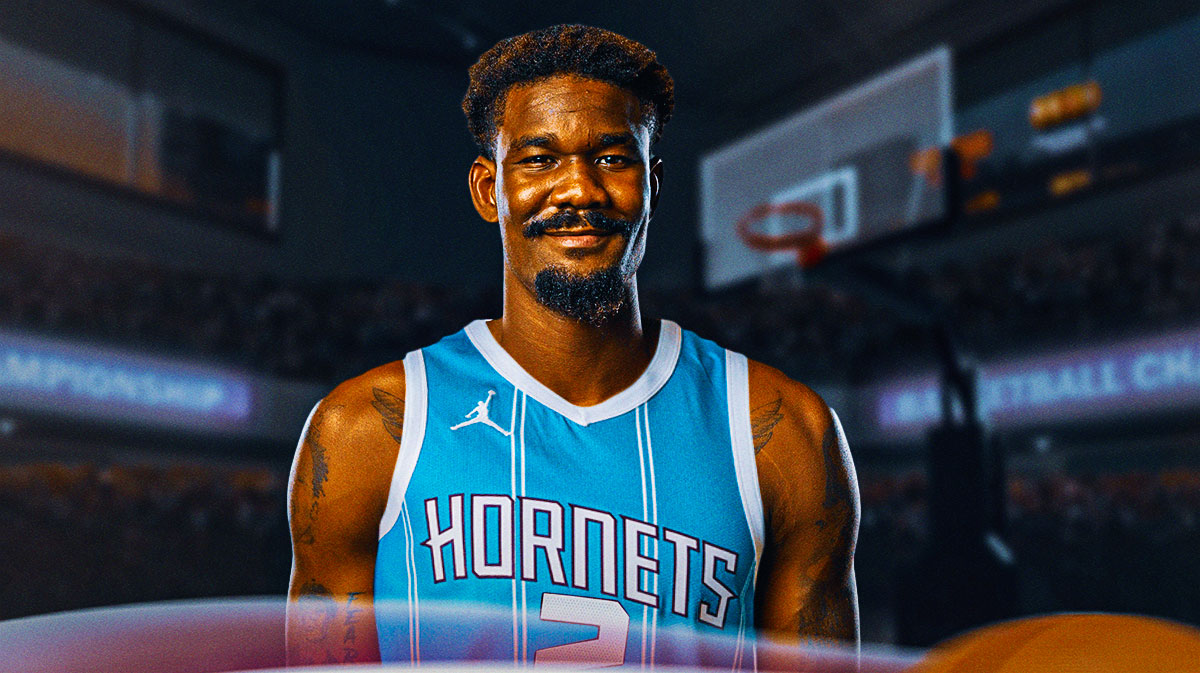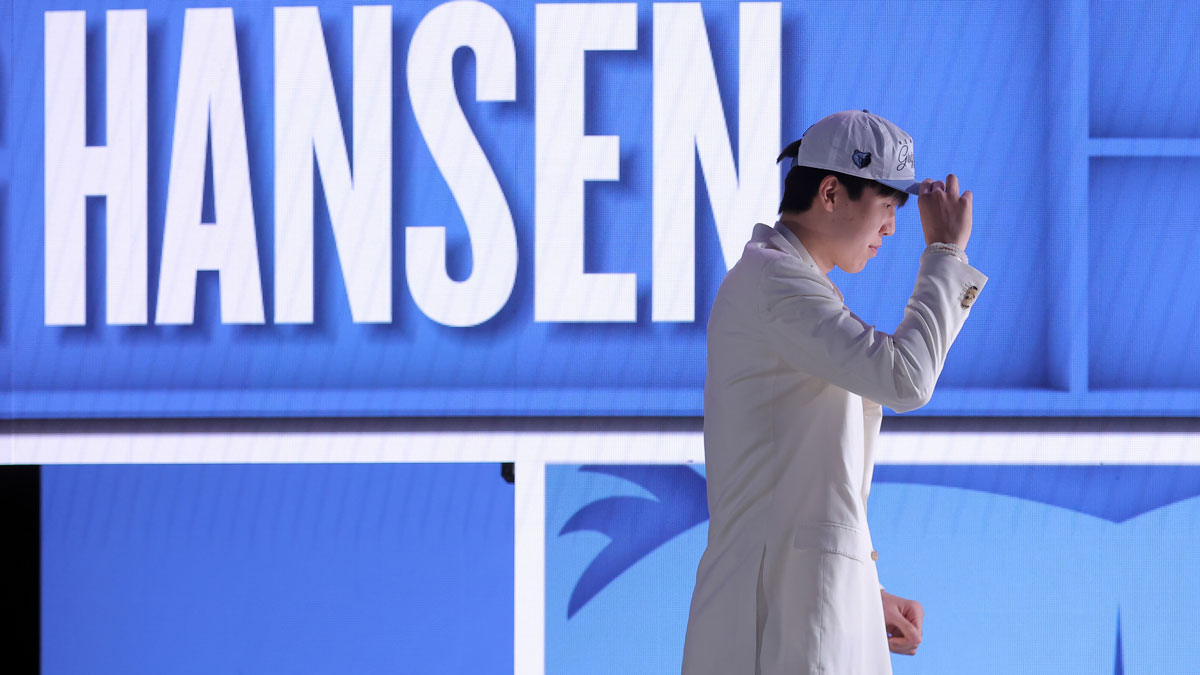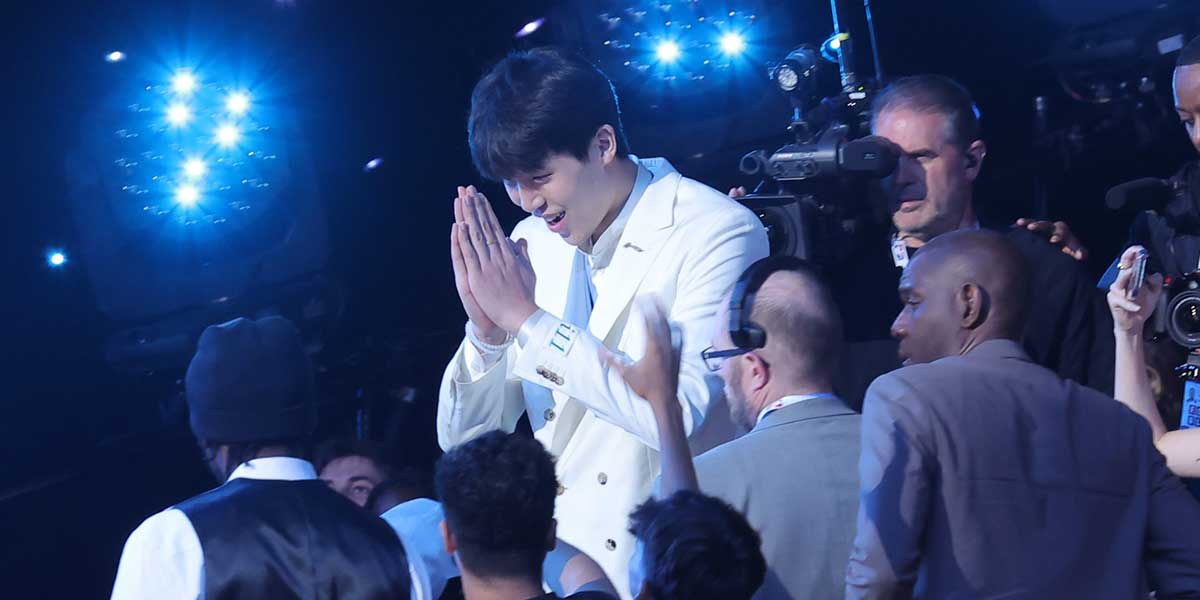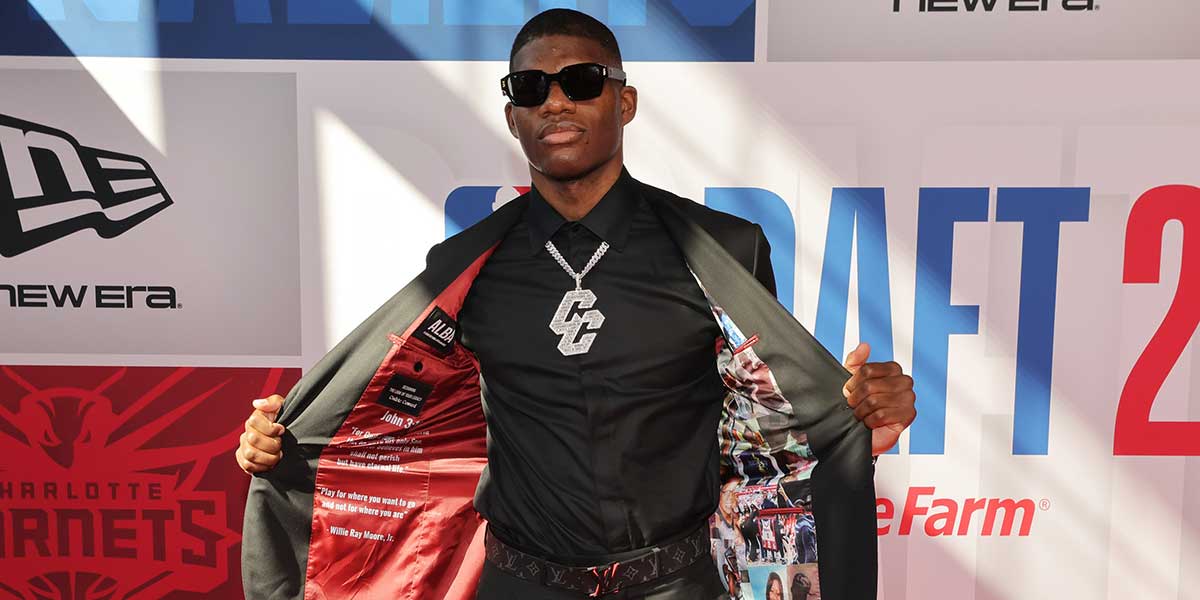The Portland Trail Blazers have little to show for one of the most shameless tanking efforts in NBA history.
Joe Cronin and the front office didn't prematurely shut down Portland's best players with minor injuries and empower multiple G-League call-ups en route to a laughable 2-21 record after the All-Star break just to get the seventh pick in the draft. The Blazers crossed their fingers and held out hope of vaulting into the top-three on lottery night, instead landing one spot below where their sixth-worst finish in the standings.
Damian Lillard responded with a facepalmed smile in Chicago, shaking his head in unison with everyone back in Rip City.
The reaction from Damian Lillard after the Blazers fall into the 7th pick in the NBA draft lottery
Is he happy? 😅pic.twitter.com/9xxxUAqtC7
— ClutchPoints (@ClutchPoints) May 18, 2022
The truth is that Portland's dreams of a truly transformative offseason died when the New Orleans Pelicans won the play-in tournament, robbing Cronin of an additional lottery pick.
There would've been calls for the Blazers to trade down in the draft or out of it altogether even if they'd won the chance to choose among Chet Holmgren, Jabari Smith Jr. and Paolo Banchero. Only the rarest rookies really move the needle for good teams, and Portland has every intention of not just being back in the playoffs next season, but competing toward the top of the West.
The Blazers' best-case scenario for next season during tanking doldrums of March and April? Achieving that ambitious goal and charting a post-Lillard future, the result of moving one lottery selection for a true impact player and using the other to develop a homegrown star.
But Portland lost the luxury of having a cake and eating it too weeks ago. The biggest consequence of the Blazers' unlucky trip to the lottery is the decreased value of their only significant trade asset. Under immense pressure to maximize Lillard's waning prime and make good of a lost season, though, Cronin and company can't react to that development in earnest. Instead, they're forced to buckle down and forge ahead.
Multiple reports surfaced this week confirming the assumption that Portland is likely to trade the No. 7 overall pick leading up to June 23rd.
Jake Fischer of Bleacher Report left the pre-draft combine in Chicago, where front office personnel from across the league had converged, calling the Blazers a “strong trade candidate.” The Athletic's John Hollinger and Sam Vecenie report that the Blazers' first top-10 pick since Lillard was drafted is almost “certain to be on the move.”
Again, it's hardly shocking. But just because Portland's prospective trade is so easy to see coming doesn't mean that's the best course of action for this franchise's foreseeable and long-term future.
https://twitter.com/BlazersNationCP/status/1527680296396931072
Odds are firmly against the Blazers exchanging the seventh pick for a star-level player—the type they need to level up amid a loaded Western Conference in 2022-23. There's a chance none of those guys change teams this summer, and Portland can't meet the established price of trading for one anyway without also dealing Anfernee Simons, a non-starter.
Would Jerami Grant or another dynamic, versatile starter be worth No. 7? The Athletic reports the Blazers “could look at other options” beyond the Detroit Pistons forward, a known front office target and personal favorite of Lillard's dating back to before the February trade deadline.
John Collins of the Atlanta Hawks is another name frequently floated for Portland, as is New York Knicks power forward Julius Randle. Pascal Siakam and OG Anunoby of the Toronto Raptors have been bandied about.
All of those forwards would be varying degrees of helpful for the Blazers. None of them would plug the many roster holes that prompted Portland to tank, though, let alone serve as the co-star Lillard needs just to give his team a puncher's chance of getting back to the NBA Finals for the first time since in over 30 years.
Factoring in Grant's imminent extension and the pricey contracts of Collins, Randle and Siakam is a stark reminder of the risk associated with trading No. 7.
Do the Blazers want to be locked into paying Lillard, Simons and a borderline All-Star north of $100 million through the end of the former's prime? A league-leading eight straight playoff appearances wasn't good enough for Portland to keep its expensive previous core intact. Suffice it to say an older, costlier, less proven one wouldn't fare any better.
Anunoby's relative youth and offensive scalability makes him a more attractive potential addition, especially considering the market could undervalue the major on-court impact with which his box-score numbers don't always align. There are also still two full seasons on his bargain of a current deal, too.
Adding a prototype modern-day role player like Anunoby, though, should mark a contending team's final piece, not its first one. Portland needs quality wings in the worst way, but there are only a few in the league good enough to take the Blazers where they so desperately want to go. Kevin Durant, Kawhi Leonard and Jayson Tatum aren't coming.
Damian Lillard picks the top superstar he would want to team up with #RipCity https://t.co/bM8Z8XcuIA
— Blazers Nation (@BlazersNationCP) May 15, 2022
Zach LaVine isn't, either, barely rumored whispers be damned. Bringing in another expensive, score-first guard with average defensive chops at best would only compound the Blazers' problems.
DeAndre Ayton is at least a slightly more realistic trade target for Portland, and certainly a much better one. He'd be an immediate two-way upgrade on Jusuf Nurkic, then form the pillars of the Blazers' post-Lillard era alongside Simons. One problem: Portland couldn't acquire Ayton from the Phoenix Suns in a sign-and-trade until 30 days after the draft due to base-year compensation rules.
The Blazers are stuck between a rock and a hard place, a consequence of doubling down on their commitment to the most beloved player in franchise history and relying on lottery balls to wiggle their way out. No matter who ultimately comes to Rip City in exchange for No. 7, the benefit of time could very well prove that Portland moving it was a grave mistake.
Unfortunately, there just isn't a more palatable option on the table.

